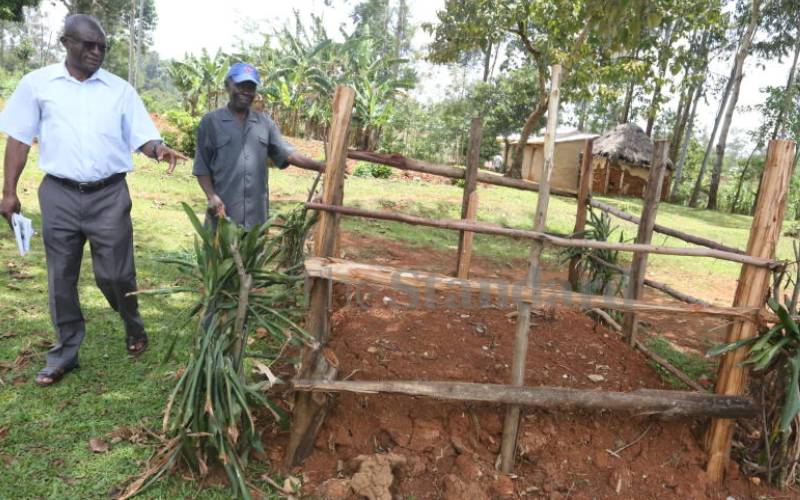×
The Standard e-Paper
Join Thousands Daily

Angusu clan elders Ernest Itenya Ichechi and Morrice Angula Ichechi showing fig trees planted on their father's grave at Ebushitsiula village in Ikolomani. [Benjamin Sakwa, Standard]
Maurice Ichechi and his brother Ernest Itenya sit pensively on plastic chairs next to their father Raphael Ichechi's freshly covered grave at Bushitsiula village in Ikolomani, Kakamega County.